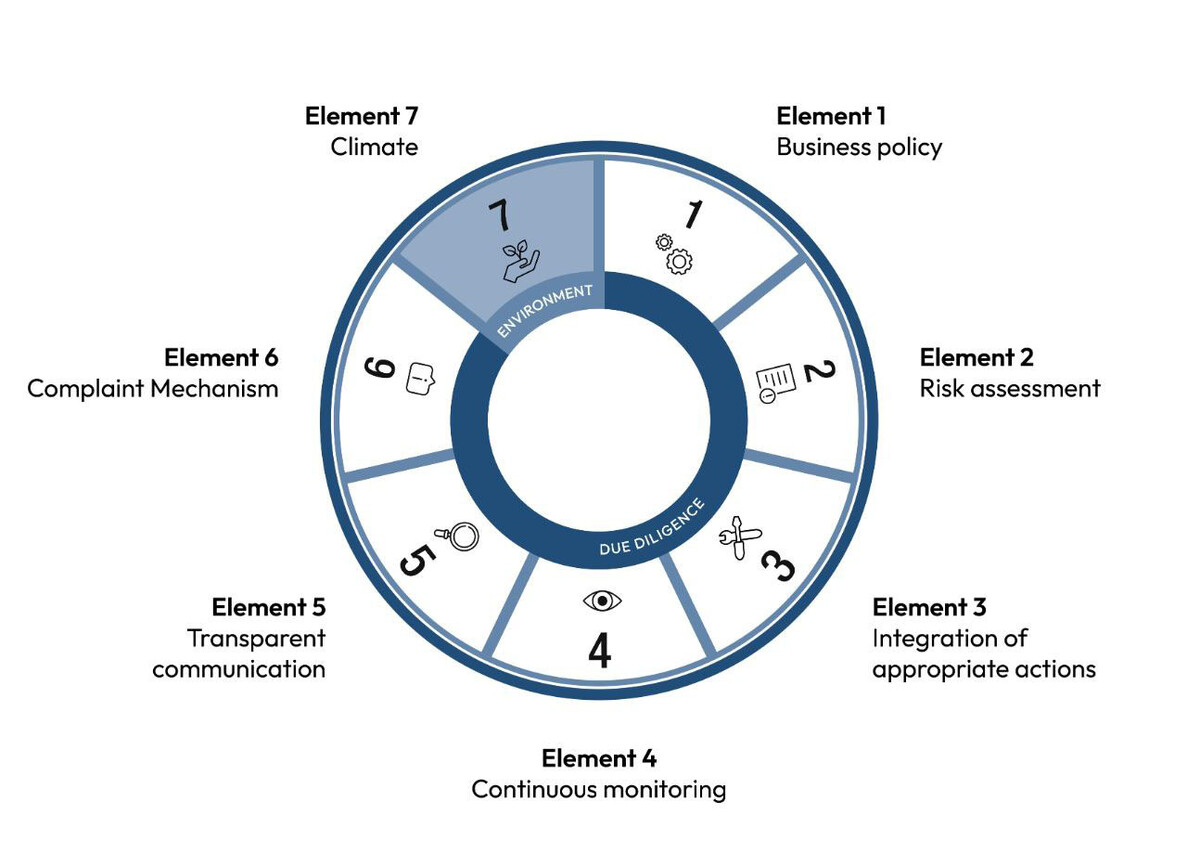
With the new tool and certification, OEKO-TEX® aims to prevent and mitigate existing and potential negative impacts of companies’ own business operations, their supply chains and in their wider business relationships. “An expansion of our portfolio in this direction was important to us. OEKO-TEX® has stood for product safety for more than three decades and continuously advocated transparent supply chains and corporate responsibility,” says OEKO-TEX® Secretary General, Georg Dieners. “In terms of due diligence, a holistic analysis and evaluation is key. To develop this robust standard, we have used our proven, globally standardised system and 30 years of experience in the textiles and leather industry.”
The standard is based on the UN Guiding Principles on Business and Human Rights (UNGPs), the OECD Guideline for Multinational Enterprises, the OECD Due Diligence Guidance Textile and Footwear and the OECD Guideline for Responsible Business Conduct. It also ensures compliance with the German Supply Chain Act and the proposed European Directive on Corporate Sustainability Due Diligence. Like the OECD Guidelines, the OEKO-TEX® RESPONSIBLE BUSINESS due diligence process is structured in six sections: business policy, risk assessment, integration of appropriate actions, continuous monitoring, transparent communication, and complaint mechanism. Additionally, OEKO-TEX® includes a seventh, voluntary module on climate action. In the climate module, companies commit to the Paris Agreement and its target to limit global warming to 1.5 degrees Celsius above pre-industrial temperatures. With this module, companies can smap their climate performance, strategy and goal implementation, measure improvements within the company and target further supply chain improvements.
OEKO-TEX® RESPONSIBLE BUSINESS is a modular system that facilitates access for small businesses and newcomers as well as large multinationals. The self-assessment works as a stand-alone tool to evaluate due diligence status. This snapshot of the company’s responsible business status identifies areas for improvement. Every participant can choose the next step of validation through an audit, which results in a certificate and a report that can be shared publicly. Interested parties can apply on the OEKO-TEX® website and decide after the self-assessment whether to proceed with the audit.
The certificate, valid for 3 years, includes annual compliance audits and can subsequently be extended.
OEKO-TEX® launches new branding
In its 30th year of dedication to safer textiles and leather, OEKO-TEX® has created a new brand identity. OEKO-TEX® aims to create trust within the textile and leather industry and for their customers. The new brand identity will not change that. Based on scientific principles, OEKO-TEX® has been promoting transparency in the textile and leather industry for decades. The most visible change is the new OEKO-TEX® logo, based on a geometric square and an organic circle, which reflect the scientific approach of OEKO-TEX® and the nature it aims to protect. This will make communication easier for OEKO-TEX®-certified companies and foster end consumer recognition. The lengthy transition period through 2024 considers sustainability.
Detailed information on the OEKO-TEX® rebranding is available here.
About OEKO-TEX®
For 30 years, OEKO-TEX® has been offering standardized solutions that companies in the textile and leather industry can use to transparently and sustainably optimize their manufacturing processes. Based on scientific principles, OEKO-TEX® contributes to bringing high-quality, safe and sustainable products onto the market. 21,000 manufacturers, brands and trading companies in more than 100 countries are currently working with OEKO-TEX®. At the same time, millions of consumers around the world use the OEKO-TEX® labels as a guide for their responsible purchasing decisions. Products and suppliers certified by OEKO-TEX® can be found online in the OEKO-TEX® Buying Guide at www.oeko-tex.com/buying-guide.
